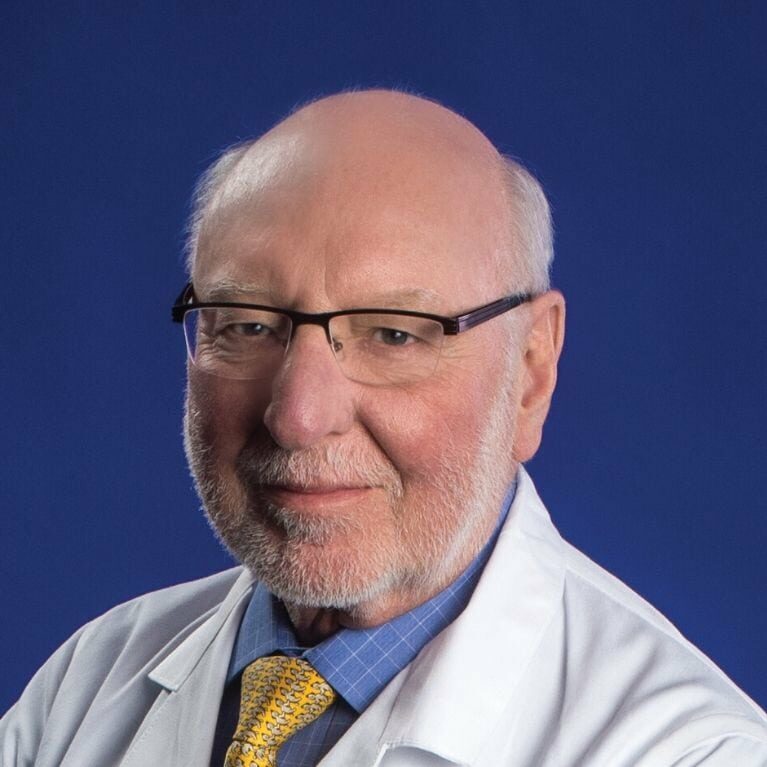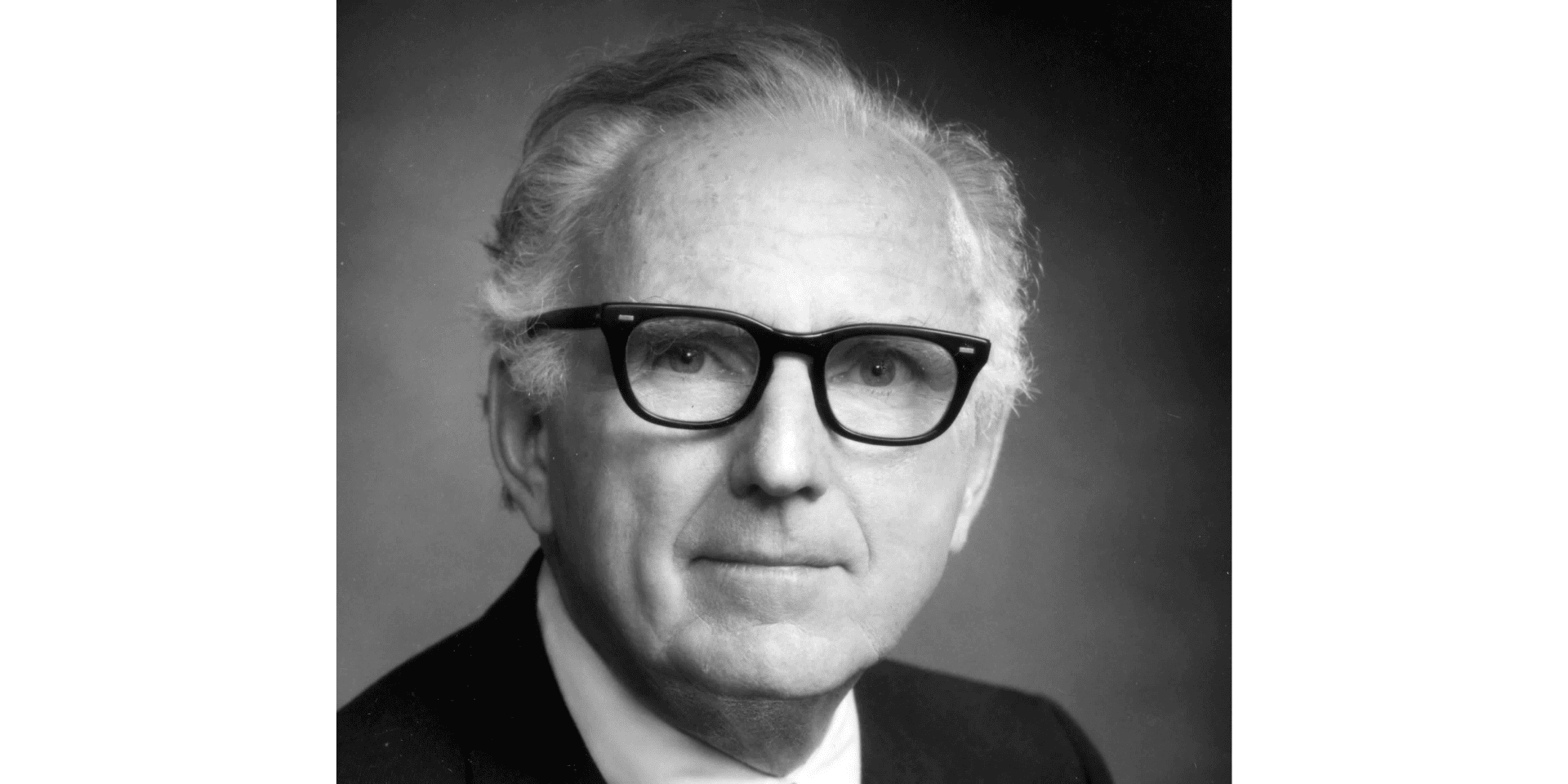In 2007, the National Foundation for Infectious Diseases (NFID) established the John P. Utz Leadership Award as a lasting memorial to the late John P. Utz, MD, a founder of NFID and a champion in the fight against infectious diseases.
To honor his memory and years of dedication to the profession and to NFID, the award is presented to individuals who exemplify and support NFID leadership goals, through service to NFID and/or the field of infectious diseases, as selected by the NFID Board of Directors.
Richard J. Whitley, MD, will receive the 2020 John P. Utz Leadership Award in recognition of his long-standing leadership in the field of clinical virology and his expertise in how antiviral therapies fight infections in children and adults. Best known for his pioneering work in herpes antivirals, he also led the development of guidelines for the emergency use of influenza (flu) antiviral therapy in infants. In the midst of the COVID-19 pandemic, Dr. Whitley is the primary investigator on the National Institutes of Allergy and Infectious Diseases grant to study remdesivir, which recently became the first Food and Drug Administration-approved drug to treat patients hospitalized with COVID-19, and he is playing a crucial role in evaluating the data on safety and effectiveness of coronavirus vaccines. An outstanding physician and researcher who has dedicated his life to the well-being of others, Dr. Whitley is currently a distinguished professor of pediatrics, microbiology, medicine, and neurosurgery and the Loeb Eminent Scholar Chair in Pediatrics at the University of Alabama at Birmingham.
Tribute Video
Acceptance Remarks
An Interview With Dr. Whitley
What is your greatest professional accomplishment?
My greatest accomplishment has been creating and working with a team of people committed to excellence and, in so doing, improving the standard of care for children and adults with viral infections. The standard of care has been changed for herpes simplex encephalitis, neonatal herpes simplex virus infections, congenital cytomegalovirus infection, influenza, and shingles, among others. Such work is definitely a team effort!
My career as a physician, with a focus on infectious diseases, has been a joy. I feel privileged to be a part of this profession and its evolution over the last 40 years. I have no regrets going down this path and would do it all over again. Along the way I have had wonderful patient-physician interactions, met fantastic leaders in science who remain friends, and, most importantly, worked with outstanding colleagues in my division and department.
What is the greatest challenge you have faced in your career?
The greatest challenge has been persevering in the development of data to guarantee the licensure of the first-generation antiviral-drug vidarabine. This was at a time when diagnostic methods were challenged for ethical reasons. Ultimately, the data spoke and confirmed the utility of therapy. Further, the work emphasized the importance of an unequivocal disease diagnosis.
Describe a specific project or situation that has had a profound impact on you to this day.
Being able to engineer herpes simplex virus, a virus that causes encephalitis and has a high mortality, so we could use this virus to treat brain tumors. The results indicate that treatment can prolong survival and improve quality of life, particularly in children with recurrent glioblastoma (brain cancer).
Who has had the greatest impact on your professional career development? What inspired you to work in the field of infectious diseases?
Two medical scientists: Charles Alford, MD, who worked at the University of Alabama at Birmingham (UAB), and Bernard Roizman, ScD, the Joseph Regenstein Distinguished Service Professor of Virology in the departments of microbiology and molecular genetics and cell biology at the University of Chicago. Dr. Alford introduced me to infectious diseases clinical research. Dr. Roizman has been a partner in one project after another to better understand latency and neurovirulence as well as translate these findings to clinical research. In addition, Bill Benton, MD, and Ralph Tiller, MD, both from UAB, taught me clinical medicine.
Who do you most admire, and why?
There is no contest here—my parents. They were much older than my friends’ parents. They devoted so much time to my upbringing that I could not imagine that happening today in our “hustle and bustle society.” I rode horses competitively and needed to commute to the barn–45 minutes each way and seven days a week. My Mom and Dad took on this role without a question. It was their trust, love, and support that helped me grow. To reflect this nurturing, I endowed a chair in their name at the University of Alabama at Birmingham.
Recognizing the challenges that we face, both as a nation and as a global community, what are the greatest threats and opportunities for the infectious disease profession?
There are so many threats to our global community. First, antimicrobial resistance is an ever-increasing problem. Antimicrobial stewardship programs, control of antibiotic prescriptions to avoid use for viral illnesses, and eliminating antibiotics from the food chain are all essential. Second, with climate change we will see diseases in the US and elsewhere that have not been previously encountered, including dengue, chikungunya, and Eastern equine encephalitis, among others. Furthermore, new viral diseases are now being encountered in the US, such as Zika. Third, globally we are NOT prepared for an influenza pandemic. We must develop new and novel therapeutics to address influenza and other emerging viral infections.
What are the greatest changes you have seen in the profession since you began your career?
Several issues come to mind. First, infectious diseases physicians are not the most valued care providers at most institutions as they do not generate the revenue of other care providers. As a consequence, their compensation is less. This is a disincentive for medical school graduates to pursue an ID career, especially when confronted with huge debt from medical school loans. Second, our fellowship programs do not lend themselves to the training of “physician-scientists.” The ability of graduates of fellowship programs to do basic or even translational research is vanishing, as reflected by an inability to secure sustained National Institutes of Health (NIH) support.
What most keeps you up at night?
Funding for a team our size is always a problem, particularly as sources become tighter. If we remain productive as a team, we will not only survive but do well. When you have created a work family, you must take care of them.
What advice do you have to offer to the next generation of infectious disease professionals?
Today, science is a team sport. Either create or work with a team where positive interactions allow for both personal and scientific growth. Be prepared to change and don’t be afraid of it. Change is good and will refresh not only your scientific career but also you, as an individual.
Is there anything else you would like to emphasize or share?
Three quotes that provide insight both into science as well as our lives:
“If you want to go fast, go alone. If you want to go far, go with your friends.”–Unknown African tribesman
“Rather than talk louder, develop better arguments.”–Desmond Tutu
“The task is always impossible until the problem is solved.”–Nelson Mandela


